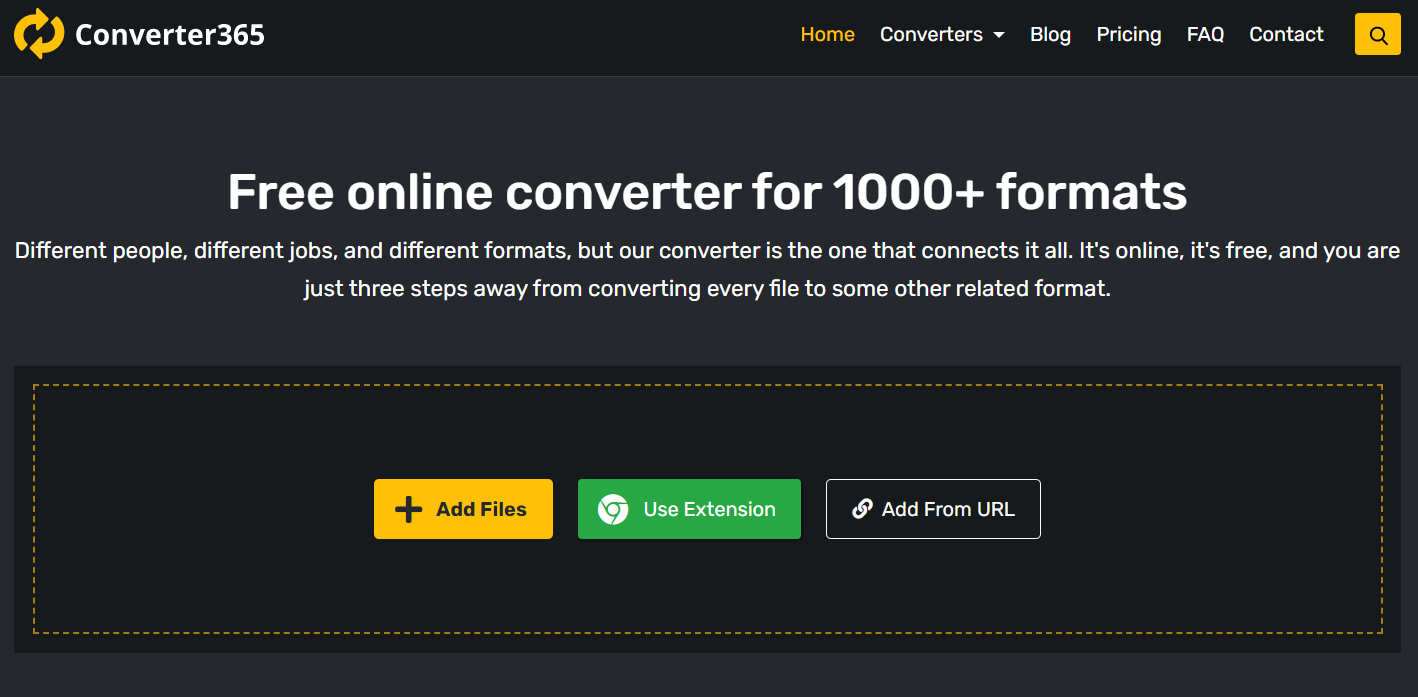Most popular e-book file formats

If your favorite thing to do in a quiet afternoon is reading, you probably come across some e-books besides the regular ones. Which e-book file format did you use? Did you pay attention to it at all?
In case you were wondering, there are many e-book file formats, but some are more suited for your needs than others. It is the main reason why we created a list of the most popular e-book file formats, to show you the best file extensions for different devices and users’ needs.
On this page:
Top 5 most popular e-book file formats
As we previously mentioned, some file formats are more popular than others. Why? Mostly because of their compatibility with different devices and operating systems. Following e-book file formats are just like that, compatible and widely used.

1. EPUB – widely adopted e-book file format
If there is one file format that can be called widely adopted, it is EPUB. The International Digital Publishing Forum developed this e-book file format, known as EPUB, in 2007. Now, EPUB is used by more than 300 e-readers such as Apple’s iBook, Adobe Digital Editions, Barnes and Noble’s Nook, etc.
This type of file format is free to use, open standard, and vendor-independent as well, and it is no wonder that EPUB is number one on our most popular e-book file formats list. Although it is primarily used for text and an image here and there, EPUB supports SVG graphics, interactive elements, and even full videos.
Plus, even the Amazon Kindle Fire supports EPUB file extension as the only representative of a Kindle family. Luckily, you can always convert the EPUB file to any other format.
2. PDF – the second most used e-book file extension
Portable Document Format, known as PDF, is no longer reserved just for different and fundamental documents. Now, it is one of the most popular ways to deliver e-books. Another format that is widely used and, it’s no wonder that this one is the second format on a list that’s an open standard.
However, there is one downside of a PDF file – native reflowing doesn’t exist. It means that a file with a native reflowing can adapt its presentation according to the size of a screen. Luckily, there is a thing that PDF file format does that compresences lack of reflowing. A PDF file can use tags to define the underlying structure of a document.
Regardless of that, PDF is the right one for our list of most popular e-book file formats.
3. MOBI – e-book file format for almost every e-reader
Do you know which format is based on an open e-book standard that facilitates hassle-free e-book publishing? That’s right – MOBI. This type of file format is developed by a French company called Mobipocket.
Files with MOBI extension aren’t publicly available. But they are supported by almost all e-book readers. However, the MOBI file format does not provide any support for sound or video in its files. The main difference between MOBI and previously mentioned EPUB file extension is that MOBI files don’t have the ability of open standards.

4. AZW and AZW3 – e-book file formats developed by Amazon
Amazon created the AZW file format for their Kindle users and launched it back in 2007. Now, every e-book you download from Amazon Kindle will probably have one of these two file extensions. And that’s no wonder because both AZW and AZW3 have pretty good specifications.
Although these two file extensions are almost the same, AZW3 has some advantages compared to AZW, such as more fonts, layouts, and styles. This file format also supports both audio and video. Plus, they are compatible with popular operating systems, Mac, Windows, and even with Calibre and Alfa, two famous e-book management apps.
5. IBA – e-book file formats developed by Apple
If you are an Apple user, you should probably use the IBA file extension. Technically, this file format is quite similar to EPUB, except it relies on custom widget code. IBA file format also supports audio, video, and many more different interactive digital elements.
However, if you purchase e-books via the Apple iTunes store, they will probably be downloaded with EPUB file extension, but they will be DRM-restricted.
Perfect devices for the most popular e-book file formats

It is a well-known thing that there are a lot of different companies that create gadgets and devices for everyday use. Just like any other tech thing, the same goes for e-readers and e-book platforms as well. That’s why it’s so important to choose the right e-book file for a specific device. And we’re not talking just about the compatibility of a file format – we are talking about recommendations, best-suited file extensions, and e-readers.
For example, if you are a fan of PC or Mac devices, you should probably use EPUB or PDF file format. They are the easiest, the best-suited ones because sometimes other file formats aren’t supported by some operating systems. Regardless of that, you can always convert any e-book file format to another one.
When it comes to devices, the popular ones are iPads, iPhones, and iPods Touch. And as far as format goes, they are quite similar to previously mentioned PC and Mac devices. It means that you should use EPUB or PDF file extension on iPad, iPhone, or iPod Touch. But, your first choice should be the EPUB because sometimes the PDF e-books don’t work well on smaller screens.
Next, we have Kindle e-readers that use Amazon’s MOBI file format. This type of file extension can also be opened and viewed on iPod and iPhone devices via the Kindle app. And of course, Kindle can read PDF files as well. On the other hand, other e-readers such as the Nook or Sony Reader don’t support the previously mentioned MOBI file format. They prefer EPUB more.
If the versatility is the thing you search for in your e-book file format, you should choose EPUB every time. If it’s not an option, then convert your e-book to EPUB file extension. Just remember that you have to use different file formats such as MOBI if you are an owner of a Kindle device.



